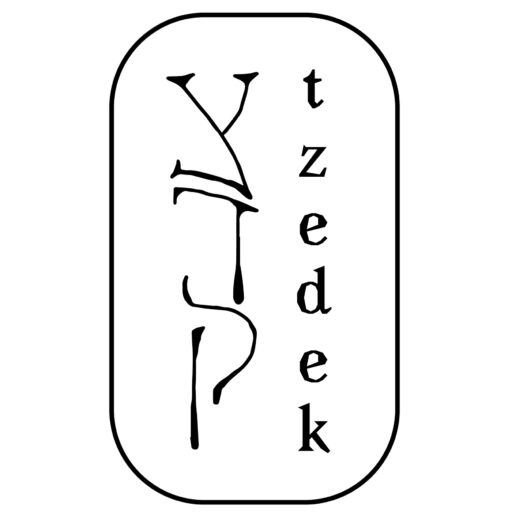23 August 2024
Committee Secretary
Senate Legal and Constitutional Affairs Committee
PO Box 6100
Parliament House
Canberra ACT 2600
To the Committee Secretary,
We are writing this submission as a staunch Jewish group called Tzedek Collective, formed in 2021 and based in and around Gadigal, Warrang, Bidegal, Dharawal and Dharug lands.
Tzedek represents a growing number of Jewish people, including university staff and students, united in our desire to cultivate an anti-Zionist Jewish community that is rooted in the Yiddish diasporic principle of ‘hereness’. Our goal is to develop a cultural, spiritual, inclusive and pluralistic Jewish community that has strong ties with the broader community. Our collective’s principles are rooted in and guided by our Jewish identities, culture, customs, practices and religion.
Tzedek Collective operates from a position of shared struggle and unity. We are deeply concerned about the attempt to essentialise antisemitism and treat it as a distinct and removed form of prejudice.
As university workers and students, we see daily prejudice and violence targeting Muslim, Aboriginal and Torres Strait Islander, and Palestinian people, international students, and other people from socially marginalised cultural backgrounds. These people bear the brunt of racial violence and prejudice. We know because these are our students, our colleagues, our friends.
Tzedek Collective has been active in calling for an end to the genocide and ethnic cleansing of Palestine, and for the liberation and self-determination of Palestine. As students and staff members on university campuses, we have found solidarity and camaraderie with others in this liberatory anti-racist movement calling for an end to violence inflicted in the name of Zionism (as Zionism ultimately strives for Jewish supremacy). We have felt welcomed and hold mutual respect within the movement. We have held and participated in both multi-faith and Jewish-specific celebrations with Palestinians and Muslims.
It is clear that this proposed Commission of Inquiry aims at advancing the dangerous project of pressuring universities to adopt the International Holocaust Remembrance Alliance (IHRA) definition of Antisemitism. The danger of adopting this definition in any legal or policy mechanism cannot be understanded.
While the IHRA’s definition of antisemitism per se might seem innocuous because of its vagueness and lack of precision, seven of the eleven examples the definition uses refer explicitly to Israel, labelling legitimate critique of Israel as antisemitism. In other words, the IHRA definition conflates anti-Zionism and criticism of Israel with antisemitism. Because of this, since its introduction, the IHRA definition has been used against academics and students to censor speech on Palestine and Israel rather than to protect the safety of Jewish staff and students.
The IHRA definition is a contested and problematic definition with serious implications for academic freedom and for our responsibilities as university workers and students to tell the truth and to support others to tell those truths. It is not an anti-racism framework, and in fact, has been used to vilify academics, activists, students, and others and stifle academic speech and freedom in Australia, as well as in the US, UK, and Canada. Even before complaints might be made, it has a chilling effect, with staff and students around the country often already afraid to talk publicly about Israel’s actions and its histories, in case of receiving a vexatious complaint: we know that this is the case at Australian universities because many members of our Collective are university staff and students.
Critics of the IHRA definition point out that it both defines legitimate criticism of Israel too narrowly and demonisation of it too broadly, that it trivialises the meaning of antisemitism, and that the definition is used in practice to silence political debate and freedom of speech regarding Israel/Palestine. Moreover, the IHRA definition itself promotes problematic double standards, asserting that the structures of Israel – the fact that it is a settler-colonial racial state – cannot be discussed. This contravenes what we know to be possible, and required, when we talk about settler-colonial countries like Australia. Protecting Israel from charges of systemic racism would effectively establish an “Israel Exceptionalism” clause.
As a result, we contend that the push to promote the IHRA as an anti-racism instrument has implications for all collectives and individuals who are outspoken against Israel and Israeli policies and actions, including Jewish ones. Particularly at this moment in time, when social cohesion is a serious issue across Australia, adopting controversial definitions – which are not effective tools in fighting antisemitism – would be counterproductive.
Countering rising antisemitism is a serious and important task, but this definition is not helpful in this regard. If the IHRA definition becomes institutional policy, it can have grave and material implications on people’s – including Jewish people – right to freedom of expression.
We, as a Jewish collective committed to anti-racism, are not in favour of addressing antisemitism in isolation from other forms of racism. No separate definition of antisemitism is needed in order to understand it or fight against it. On the contrary, the most effective way of dealing with the very real antisemitism that does exist in society is through a broader anti-racist approach, which sees antisemitism as both historically specific but as deeply interlinked with other forms of discrimination and racism.
We are witnessing a genocide unfold in Gaza. Israel’s deliberate actions to devastate Palestinian life and all that sustain it have never been clearer. We urge the Commission of Inquiry to remember what’s at stake: calling out genocide is a moral duty for every single person. With the recent ICC and ICJ proceedings into Israel’s actions in Gaza and in the West Bank, there are also potential legal implications.
We urge the Commission of Inquiry to heed our concerns. If we are to undertake tangible work to address antisemitism, we need to address racism and prejudice in all its forms, and our actions must be rooted in solidarity, rather than essentialise a very specific Jewish Zionist experience.
Tzedek Collective
